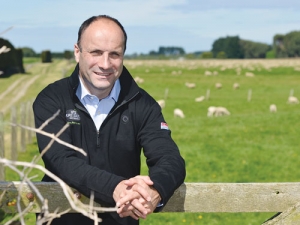Just when sheep farmers thought their meat returns could not get any worse some Alliance Group suppliers are about to find out they can.
This week the company has started withholding some stock payments to its farmer shareholders to boost its balance sheet and force suppliers to meet their share requirements.
New Zealand's second-biggest meat cooperative says it will withhold 50c per head for lamb, sheep and calves, $2 per head for deer and $6 per head for cattle.
It says the payments will go towards additional shares in the cooperative but will only apply to farmers who have fewer shares than required.
The company's move aims to firm up its cooperative status, just as rival Silver Fern Farms waters down its cooperative class with its Chinese investor. Shanghai Maling is set to take a 50% stake in the meat company later this year; SFF will use the new capital to repay debt, upgrade plants and invest for growth.
Alliance says its move will ensure shareholder investment in the cooperative matches livestock supply and will bolster its balance sheet.
In a letter to its farmer suppliers outlining the proposed change, Alliance says some shareholders don't hold enough shares to reflect the amount of stock they supply.
"[We need] to ensure the cooperative has the right level of investment from our farmer shareholders, enabling them to receive the full benefit of the cooperative's profitability and ensure some suppliers are not being subsidised by others," Alliance chairman Murray Taggart and chief executive David Surveyor say.
"We believe these changes are in the best long-term interests of your cooperative."
Alliance says it is aware farmers had faced a "challenging" season and its board debated the changes "at length," mindful they would have financial implications for shareholders who don't have enough shares.
"In the end we were of the view that delaying these changes will prolong the inequity of the current system where those shareholders who meet the standard shareholding effectively subsidise those who do not."
The meat co-op says it also wants to retain more profits to allocate towards share payments. In future, it wants to be able to withhold half of a profit distribution as payment towards shares – up from one third currently.
Alliance will also end the scaling shareholding system which rewards larger farmers. Shareholder suppliers are expected to hold 11 shares per stock unit up to 5000 stock units and then reducing to 4.5 shares per stock unit, but limited to 25,000 stock units in aggregate.
One lamb, sheep, or calf is equal to one stock unit; one deer is equivalent to four stock units; and a cattle beast is equivalent to 12 stock units. Under the revised calculation, there will be no reduction from 11 shares per stock unit after a particular level of supplied stock units.
This reflects that all stock processed requires the same use of processing facilities and therefore should require the same number of shares, Alliance says.
"The strength of the cooperative depends on farmer ownership and all farmers contributing and benefitting equitably," the company tells shareholders in its letter. "We are all in this together and these changes will ensure all members of your cooperative invest equitably and that the business is appropriately capitalised to operate sustainably."
The cooperative is also lifting its shareholding cap to 1.35 million shares, equivalent to about 2% of its shares, from a current level of 145,000 shares.



















